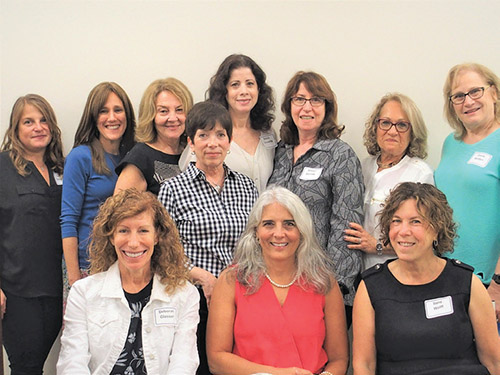

On Sunday, September 16, the Wolff Care Giver Center, part of Jewish Family and Children’s Services, presented a program at the Kaplan Jewish Community Center in Tenafly for caregivers of loved ones with dementia, with the title: “But Who’s Taking Care of You?”
If you wonder why a caregiver needs to be taken care of, you have definitely not become one. Yet, caring for anyone with a serious illness is emotionally and physically draining. Dementia not only robs people of their ability to think and reason, it grabs hold of their loved ones, too, when they take on the prime caregiving role. When you bear the brunt of a loved one’s anguish, your own health and personality take a hit. Remember the way you worried when your teen started driving? A caregiver for a spouse or parent with dementia or Alzheimer’s who is still in good physical condition, worries whenever their loved one goes for a walk—hoping they will remember how to get home. If they have the kind of memory loss that causes them to endlessly repeat the same questions or statements like a broken record (anyone still remember those?), your patience may evaporate until you have a complete meltdown. And if hearing loss is another disability, you may notice after a while that you are constantly yelling. At everyone.
So here’s the answer to the question. No one is taking care of you. But you must learn coping strategies to take care of yourself. Featured speaker Maria Sirois, a psychologist who works with families facing terminal illness, said learning the tools of positive psychology can help caregivers hold onto joy in life, not by negating their difficulties but by taking steps to make their lives a little better.
Ask yourself this question right now, as Sirois asked the group: What was your best moment today? Participants volunteered answers like getting a phone call from a child or grandchild living far away, savoring a cup of coffee in the morning or playing golf. If you get into the habit of doing this exercise nightly, you’ll start doing your “homework” during the day, and look for more good moments.
A seemingly simple but profound concept is to recognize reality as it is and how you can move to a slightly better future. Sirois gave the example of how she and her brother coped with the last few months of his terminal illness. A physician, he knew the end game. But until then, he asked those close to him to do everything they could for his kids; that security gave him some peace. Sirois decided she would be the best sister she could be, calling him each day to ask if he needed or wanted anything.
Sirois showed two photos representing different ways of perceiving the world. You can get stuck in the swamp of depression and meanness, as illustrated by a snarling monster, or savor the pond, depicted as a glorious sunset over water. Health comes from resilience, adapting to stress in a positive way and focusing on the pond, the good in life you have, not the swamp.
Sirois listed six principles of self-care: (1) Take action that is nourishing, like going for a walk and eating well. (2) Treat yourself with respect. (3) Give yourself permission to be human. (4) Build up your self-esteem and confidence. (5) Learn to say “no” and set healthy boundaries. (6) Say “yes” to what you love and do things that make you happy.
“But Who’s Taking Care of You?” was a presentation of the JFCS Wolff Care Giver Center, created and funded by Ilene Wolff, who developed the center along with her late husband, George, after her family’s struggle caring for her in-laws with dementia. The Wolff Care Giver Center provides counseling, case management, workshops and support groups. The support groups are held in Wayne but one is now being organized in Bergen County. For more information about the Wolff Care Giver Center, and the support group now forming, call 201-837-9090 or email groups@jfcsnnj.org.
The JCC Senior Center has several adult day care programs for people with mild cognitive impairment through advanced Alzheimer’s, and support groups for caregivers. For more information about JCC senior services, contact Judi Nahary at 201-408-1450 or email jnahary@jccotp.org.










